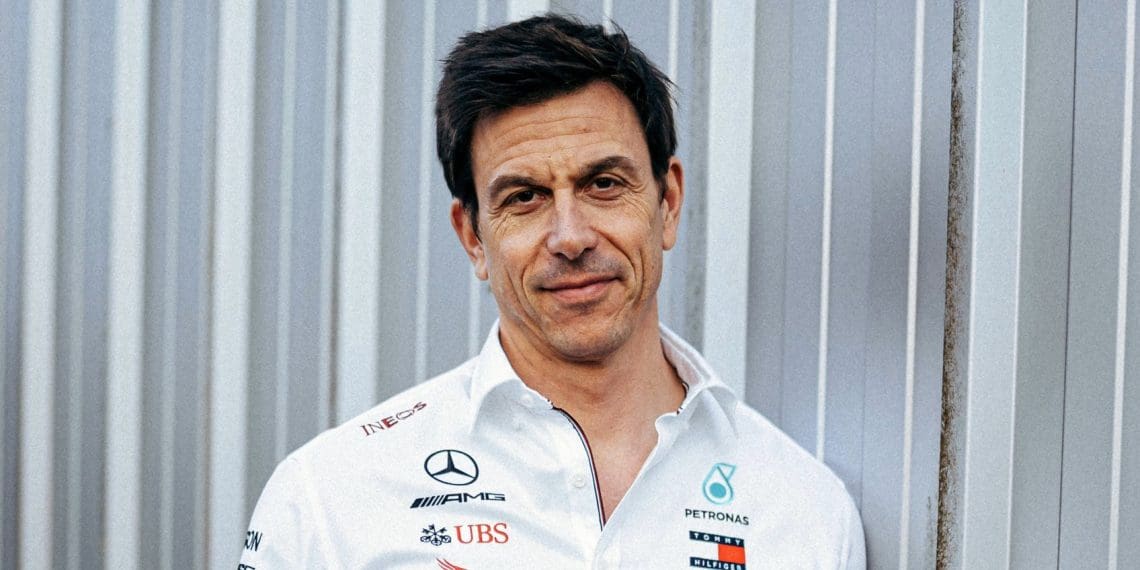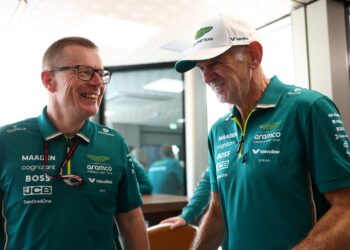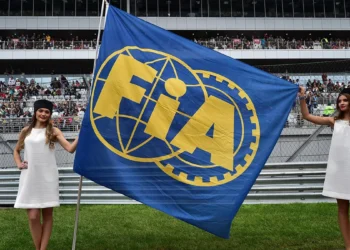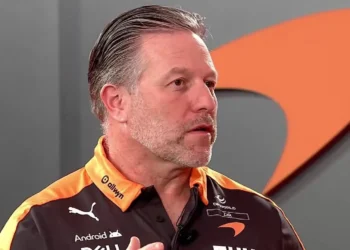In a world where the term “leader” often carries prestige, Mercedes Formula 1 boss Toto Wolff has made a surprising admission: he dislikes being called one. Despite overseeing one of the most dominant eras in motorsport history, Wolff insists that Mercedes’ success is rooted in collective strength, not individual authority.
“Leadership Redefined: A Team-Centered Philosophy”
Since taking over as Team Principal, CEO, and Co-Owner of Mercedes in 2013, Wolff has guided the team to an unprecedented eight consecutive Constructors’ Championships (2014-2021). Yet, for all his accomplishments, he rejects the notion of being Mercedes’ singular leader.
Speaking on the High Performance podcast, Wolff explained his discomfort with the term:
“I really struggle with the word ‘leader’ because a leader for me is that you stand above your people, not with them,” he said.
Instead, Wolff views leadership as a distributed effort, with numerous individuals contributing their expertise. From Lewis Hamilton on the track to James Allison in technical development, Wolff believes Mercedes thrives because of a shared vision, not top-down directives.
“There’s so many leaders in this organisation,” he added. “Only if we do good in our position, and we share those objectives, are we going to be successful.”
“The Ball Runs, Not the Players”
Wolff illustrated his leadership ethos with a metaphor:
“We are not like a bunch of five-year-olds playing football, all running behind the ball. We let the ball run. We stay where we are, in our centre of competence.”
This approach highlights Wolff’s commitment to creating an environment where everyone operates at their best, contributing to a collective victory rather than pursuing individual glory.
“The Battle with Self-Doubt”
Even with his remarkable achievements, Wolff admits to constant self-reflection and doubt.
“Every day there’s a moment where I’m thinking, ‘Am I really performing to my own expectations here?’” he shared.
This introspection extends to even the smallest daily habits, like his morning routine. Wolff revealed that he questions whether the content he reads over breakfast is productive or a distraction.
“Did I read the right thing to put me in a good state of mind to perform in the morning, or did I read some trash?”
“A Culture of Shared Success”
Wolff’s rejection of the traditional “leader” label is emblematic of the culture he has fostered at Mercedes. By prioritizing collaboration and empowering individuals to lead in their areas of expertise, Wolff has built a team that operates like a well-oiled machine.
Hamilton, who Wolff cites as a leader in his own right, exemplifies this philosophy on the track, while Allison’s technical innovations drive Mercedes’ engineering excellence. Together, these elements create a collective powerhouse that has redefined dominance in Formula 1.
“The Wolff Legacy: Leadership Without Ego”
As Mercedes continues to chase success in the ever-competitive Formula 1 landscape, Wolff’s philosophy serves as a blueprint for sustainable excellence. By rejecting the image of a single, all-powerful leader and embracing a team-first approach, Wolff has set a new standard for leadership in elite motorsport—and beyond.










